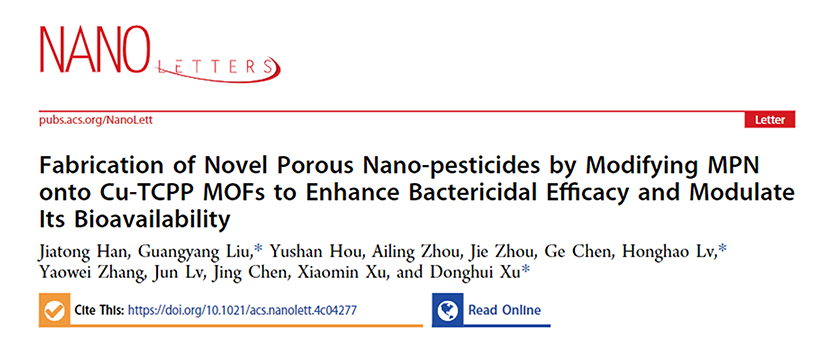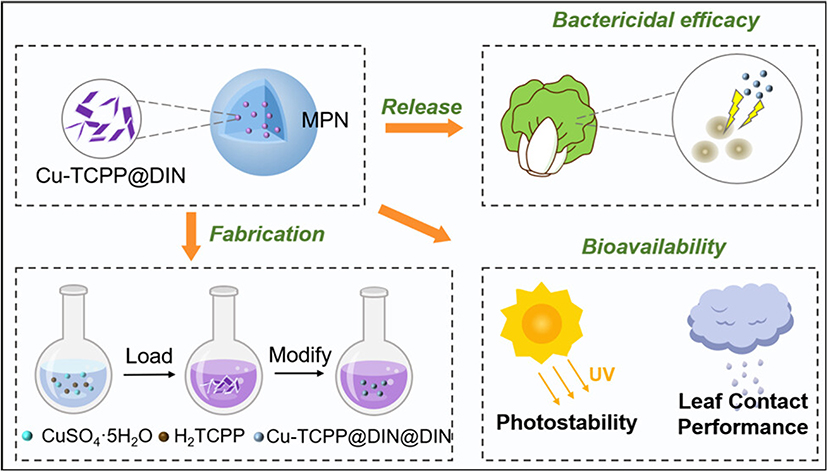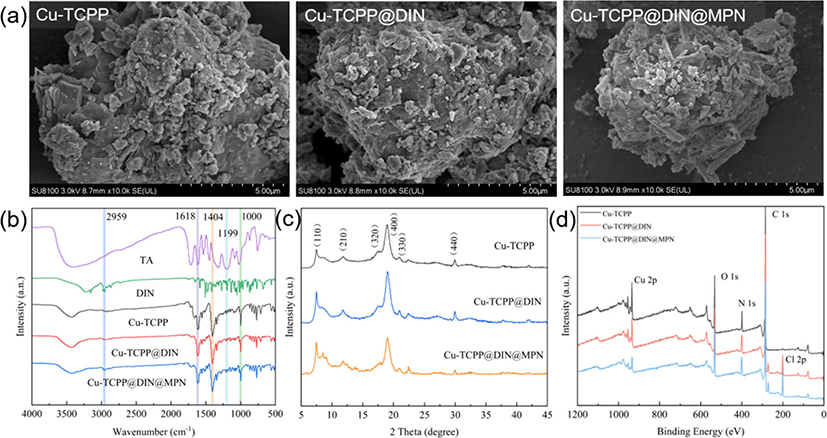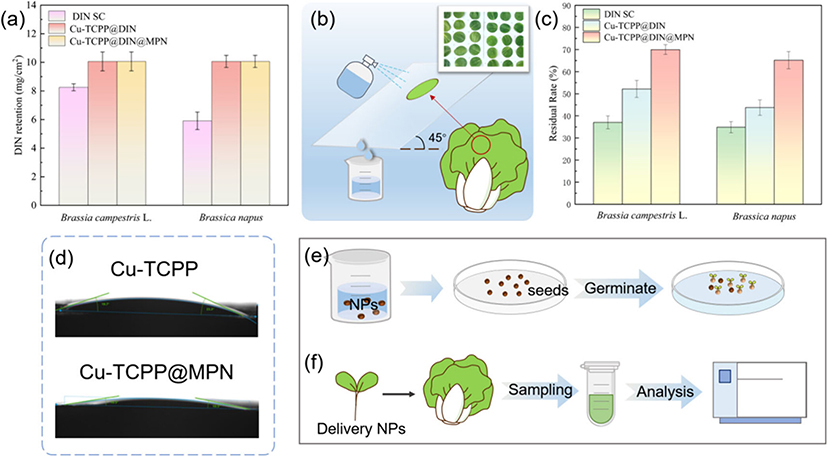Recently, the Quality and Safety Research Group of the Institute of Vegetables and Flowers, Chinese Academy of Agricultural Sciences (CAAS) has made important progress in the preparation and application of metal porphyrin MOFs porous nanocarriers. The relevant research results are entitled “Fabrication of novel porous nano-pesticides by modifying MPN onto Cu-TCPP MOFs to enhance bactericidal efficacy and modulate its bioavailability” in Nano Letters (IF=9.6, Q1).

Triazole fungicides are widely used in the control of pathogenic fungi in agricultural production, which is of great significance to increase crop yield and ensure the effective supply of edible agricultural products. However, in the actual production process, due to factors such as photodegradation and rain erosion, a large number of pesticides are lost to the environment, which greatly reduces the utilization rate of pesticides. Nanocarriers have attracted much attention in the fields of efficient loading, controlled release and improved bioavailability of triazole pesticides, but there are also problems such as declining bactericidal effect and poor adhesion. In this study, an environmentally friendly MOFs nanocore based on metal porphyrin (Cu-TCPP) was designed. The metal phenolic network (MPN) was constructed to encapsulate denazolol (DIN) to improve its bactericidal effect and regulate its bioavailability. The introduction of MPN prevents DIN from escaping prematurely from Cu-TCPP@DIN@MPN into the environment and gives it strong interface adhesion to resist rain. The prepared nanomaterial showed a lamella-embedded structure and released DIN slowly within 48h, which improved the inhibition rate of DIN against wilt bacteria (63.6%→90.9%) and light stability (39.18%→67.2%), and did not affect the normal growth and development of cruciferous vegetable seeds and seedlings. After 14 days of application on Chinese cabbage and rapeseed, the residues of enazolol were 0.09 and 0.08 mg/kg, respectively. This work provides a new idea for the development of MOFs porous nanocarriers with excellent light stability, adhesion, resistance to rain erosion and sustainable development, and has broad application prospects in alleviating vegetable disease and ensuring the quality and safety of agricultural products.

Fig.1 Preparation and application of MOFs porous nanocarriers

Fig.2 Microstructure parameters of MOFs porous nanocarriers and nano-pesticides

Fig.3 Stability, adhesion and resistance to rain erosion of MOFs porous nanocarriers and nano-pesticides
Institute of Vegetables and Flowers, Chinese Academy of Agricultural Sciences (CAAS) is the first unit to complete the paper. M.S. student Han Jiatong, Research Fellow Guangyang Liu and M.S. student Yushan Hou (Northeast Agricultural University) are the co-first authors of the paper. Research Fellow Guangyang Liu, Research Fellow Honghao Lv and Research Fellow Donghui Xu are the co-corresponding authors. The research was carried out in the State Key Laboratory of Vegetable Biological Breeding and Key Laboratory of Vegetables Quality and Safety Control, supported by National Key Research and Development Program of China, the National Bulk Vegetable Industry Technology System, Beijing Natural Science Foundation, and Agricultural science and technology Innovation Project of the Chinese Academy of Agricultural Sciences.
Web site of the paper: https://pubs.acs.org/doi/full/10.1021/acs.nanolett.4c04277